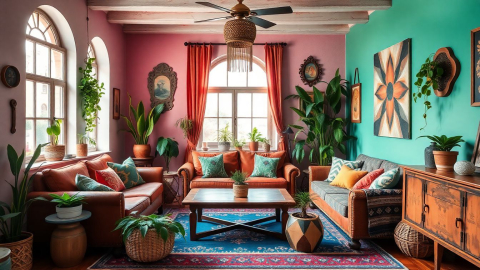The Transformative Power of Interior Design: Why It Matters More Than Ever
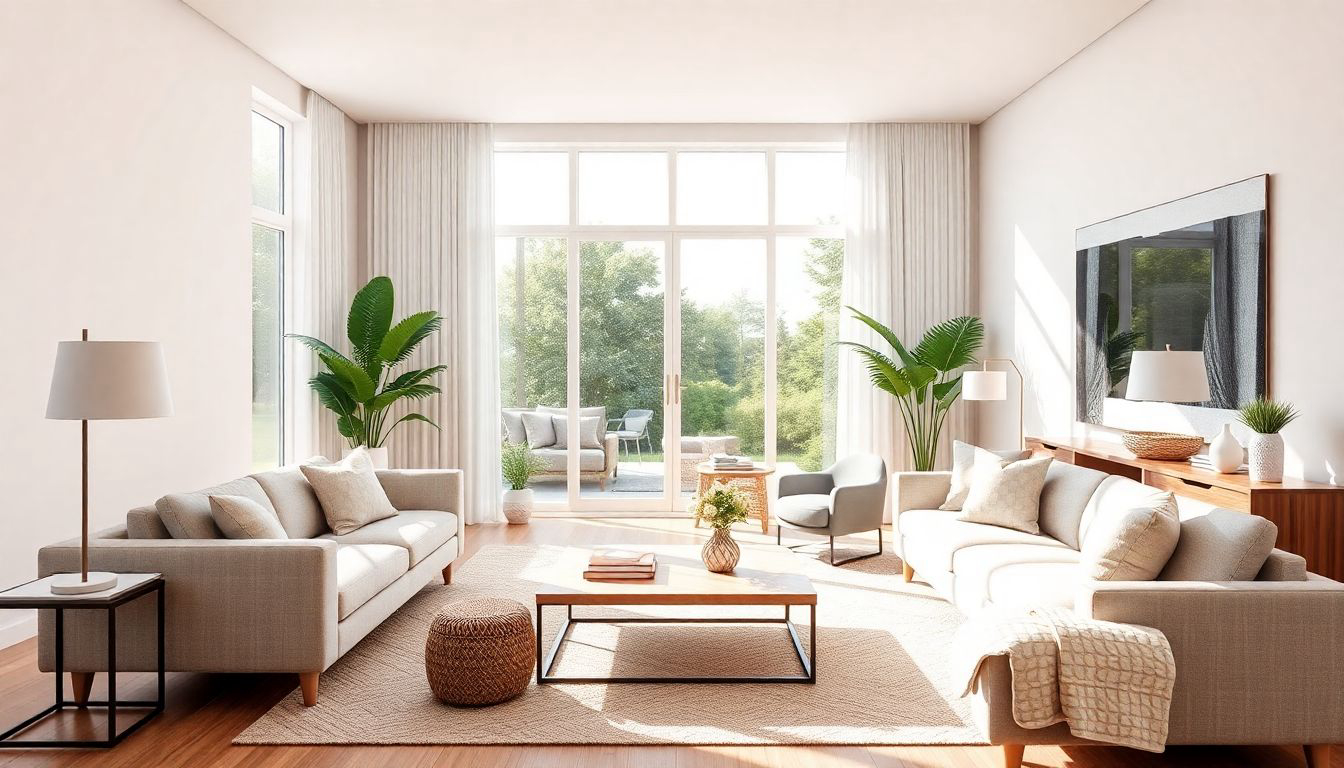
In an era where our living spaces have become more central to our lives than ever before, interior design has emerged as a powerful force for transformation, well-being, and self-expression. Far beyond mere aesthetics, thoughtful interior design has the potential to profoundly impact our mental health, productivity, and overall quality of life. As we navigate an increasingly complex world, the importance of creating spaces that nurture, inspire, and support us cannot be overstated. This comprehensive exploration delves into the multifaceted significance of interior design, examining its psychological, functional, and societal impacts, and why it matters now more than ever.
The Psychological Impact of Interior Design
Creating Sanctuaries for Mental Well-being
One of the most compelling reasons why interior design is crucial is its profound effect on our mental health and emotional well-being. A well-designed space has the power to alleviate stress, promote relaxation, and foster a sense of calm and security. As Caroline Broman notes in her article on how interior design affects mental health, "The environment that surrounds us leaves a great impact on our psychology. It impacts our mental well-being, our moods and can therefore even impact how we achieve our goals and visions of life."
Interior designers are increasingly recognizing the importance of creating spaces that serve as sanctuaries from the outside world. By carefully considering elements such as color schemes, lighting, and spatial organization, designers can craft environments that actively contribute to mental wellness. For instance, the use of calming colors like soft blues and greens can promote relaxation, while proper lighting can significantly impact mood and energy levels.
The Power of Personalization
Another critical aspect of interior design's psychological impact is its ability to reflect and reinforce our personal identities. When our living spaces align with our values, interests, and aesthetic preferences, they become powerful extensions of ourselves. This alignment can boost self-esteem, creativity, and overall life satisfaction.
As Kavya Mehta points out in her article on the impact of interior design on society, "By improving the decoration of the home or workspaces, we can feel better in our space and intimacy, which will help us to face life in a more optimistic and balanced way in all aspects." This underscores the importance of personalization in interior design, highlighting how our surroundings can influence our outlook on life and our ability to tackle challenges.
Functionality and Efficiency: The Practical Side of Design
Optimizing Space for Modern Living
While the psychological benefits of interior design are significant, its practical advantages are equally important. In today's world, where many of us are juggling multiple roles and responsibilities within our homes, efficient and functional design has become more critical than ever.
Effective interior design can transform even the smallest spaces into highly functional environments that cater to our diverse needs. From innovative storage solutions to multi-purpose furniture, designers are constantly finding new ways to maximize space utilization without compromising on style or comfort. This is particularly relevant in urban areas where living spaces are often limited, and every square foot counts.
Enhancing Productivity and Comfort
The impact of interior design on productivity cannot be overstated, especially in the context of home offices and remote work environments. A well-designed workspace can significantly boost focus, creativity, and efficiency. Ergonomic furniture, proper lighting, and thoughtful organization of work materials can all contribute to a more productive and comfortable work environment.
Moreover, the principles of interior design extend beyond individual spaces to influence the overall flow and functionality of a home. As the article from Interior Marketing points out, "Interior design not only beautifies the interior of your building but also makes sure that it adds functionality to your home. Functionality is one of the key aspects of interior design." This holistic approach to design ensures that every aspect of our living space contributes to our comfort and efficiency in daily life.
The Social and Cultural Significance of Interior Design
Reflecting and Shaping Culture
Interior design is not just a personal matter; it plays a significant role in reflecting and shaping cultural values and societal norms. The way we design our spaces can be seen as a mirror of our collective aspirations, priorities, and aesthetic sensibilities. From the grand public buildings of ancient civilizations to the minimalist interiors of modern homes, interior design has always been a powerful means of cultural expression.
In today's globalized world, interior design also serves as a bridge between cultures, allowing for the exchange of ideas and aesthetics across borders. This cultural interchange enriches our living spaces and broadens our perspectives, fostering a more connected and understanding global community.
Addressing Social Issues Through Design
Perhaps one of the most compelling arguments for the importance of interior design is its potential to address pressing social issues. The article from House & Garden highlights how interior designers are using their skills to tackle problems such as furniture poverty and create healing environments in healthcare settings.
For example, organizations like TP Caring Spaces are redesigning hospital break rooms to provide healthcare workers with calming and comfortable environments. Similarly, initiatives like Maggie's cancer care centers are focusing on creating beautifully designed spaces that support patients dealing with life-changing diagnoses. These examples demonstrate how thoughtful interior design can have a tangible impact on people's lives, particularly those in vulnerable situations.
Sustainability and Responsibility in Design
Embracing Eco-Friendly Practices
As environmental concerns become increasingly urgent, the role of interior design in promoting sustainability cannot be overlooked. Designers are now at the forefront of implementing eco-friendly practices, from sourcing sustainable materials to creating energy-efficient spaces.
This shift towards sustainability in interior design is not just about reducing environmental impact; it's also about creating healthier living environments. By choosing non-toxic materials, improving indoor air quality, and maximizing natural light, designers can create spaces that are not only beautiful and functional but also contribute to the physical well-being of their occupants.
The Ethical Dimension of Design
The growing awareness of social and environmental issues has also brought an ethical dimension to interior design. Designers are increasingly considering the broader implications of their work, from the labor practices involved in furniture production to the cultural sensitivity of their design choices.
This ethical approach to design extends to addressing issues of accessibility and inclusivity. By creating spaces that are welcoming and usable for people of all abilities and backgrounds, interior designers can play a crucial role in fostering a more inclusive society.
Conclusion: The Enduring Importance of Interior Design
As we've explored, the importance of interior design extends far beyond aesthetics. It is a powerful tool for enhancing our mental and physical well-being, improving functionality and efficiency in our daily lives, expressing cultural values, addressing social issues, and promoting sustainability.
In an increasingly complex and challenging world, the spaces we inhabit have become more important than ever. Interior design offers us the means to create environments that not only meet our practical needs but also nurture our spirits, inspire our creativity, and connect us to the broader world.
As we look to the future, the role of interior design is likely to become even more significant. Emerging technologies like virtual and augmented reality may open up new possibilities for personalization and experimentation in design. Meanwhile, the growing emphasis on mental health and well-being will likely lead to further innovations in creating spaces that actively contribute to our psychological comfort.
Ultimately, the importance of interior design lies in its ability to shape our experience of the world from the inside out. By creating spaces that reflect our values, support our needs, and inspire our aspirations, interior design has the power to profoundly impact the quality of our lives and the health of our communities. As we continue to navigate the challenges of the 21st century, thoughtful and responsible interior design will undoubtedly play a crucial role in creating a more beautiful, functional, and sustainable world for all.
References and Further Reading
- Broman, C. (2022). How interior design affects mental health? Design Studio 210. https://www.designstudio210.com/interior-spaces/how-interior-design-affects-mental-health/
2. Mehta, K. (2019). How does interior design impact society? PropertyHome. https://propertyhome.in/interior-design-impact-society/
- Interior Marketing. (2023). The Ultimate Guide to Interior Marketing for Small Business. https://interior.marketing/articles/the-ultimate-guide-to-interior-marketing-for-small-businesses
4. Bentel, A. (2023). How interior design has the power to change lives. House & Garden. https://www.houseandgarden.co.uk/article/interior-design-charities
- Marsh, K. (2022). The 7 Basic Principles of Interior Design. Kathryn Interiors. https://kathryninteriors.com/the-7-basic-principles-of-interior-design
More Articles
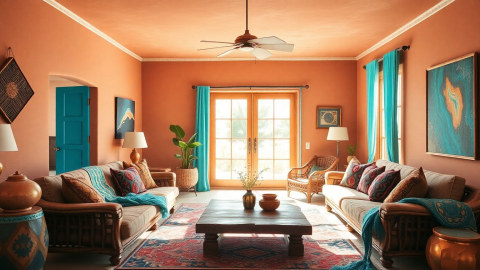
Southwestern Interior Design: A Timeless Blend of Desert Chic and Cultural Heritage
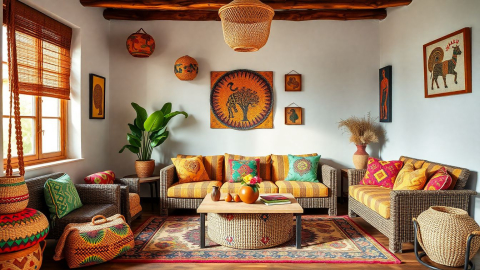
The Soul of Africa: Embracing Vibrant Design in Modern Interiors
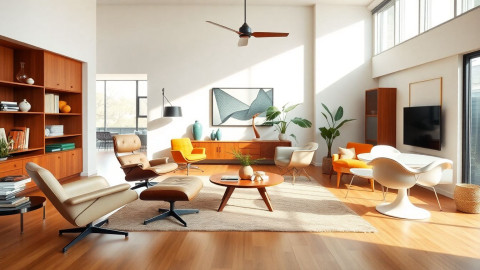
The Timeless Allure of Mid-Century Modern Interior Design: A Comprehensive Guide
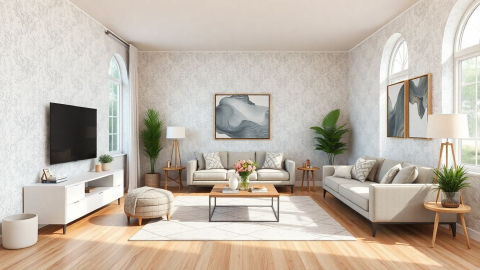
Revolutionizing Interior Design: Harnessing the Power of AI for Stunning Spaces
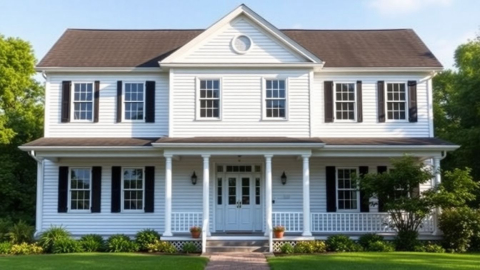
American Colonial Architecture: A Satirical Stroll Through History's Architectural Attic
